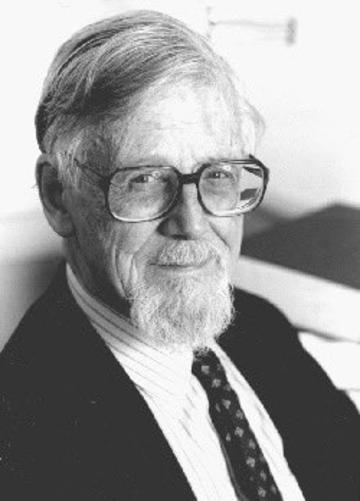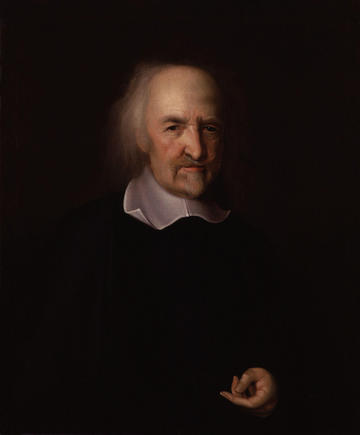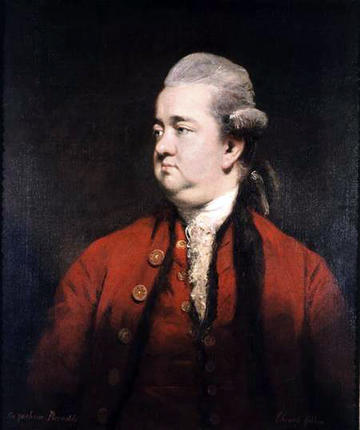J. G. A. Pocock (1924-2023)
‘A great tree has fallen.’ So declared John Pocock unforgettably at the beginning of a lecture in Oxford on 5th November 1997, movingly announcing to his audience the death of Isaiah Berlin that day. With the death of John Greville Agard Pocock on 12th December 2023, a few months short of what would have been his hundredth birthday, we can say again that a great tree has fallen. It was a symbolic moment to occur halfway through the inaugural series of Isaiah Berlin Lectures which he had fittingly been chosen to deliver. Berlin, whose greatest philosophical insight was that of the often-tragic value pluralism that dominated post-Enlightenment thought and experience, was commemorated by an historian whose allied insight was that plurality – be it that of political discourse, composite-kingdom territories, or varieties of Enlightenment – explained history rather more than did any singularity, whether it be of thought, experience, or epoch. For Berlin, pluralism was an agonistic form of liberalism; for Pocock it was a form of methodological thinking inseparably allied to his intuitive conviction that in seeking to do justice to the many complexities of the past, the historian ought to be, if she isn’t always actually, a liberal.

J. G. A. Pocock (1924-2023)
Berlin knew of such things from the inside as an involuntary exile from revolutionary Russia (he was barely nine when he moved to suburban Surrey with his parents), and by virtue of being Jewish in frequently antisemitic British society. Altogether less dramatically, Pocock’s upbringing was comparably cosmopolitan, if rather more prosaic. Born in London, Pocock was bred up from the age of three in New Zealand, where his father, a Homer scholar, was professor of classics at the University of Canterbury in Christchurch, the university at which he was subsequently to study as an undergraduate before moving to England for his doctorate at Emmanuel College, Cambridge under the somewhat distant supervision of Herbert Butterfield, whose Christianity and faith in Providence he did not share. A series of academic posts was to follow: in New Zealand, teaching at his alma mater and at the University of Otago; in England, through a research fellowship at St John’s College, Cambridge and a lectureship at King’s College, Newcastle (now the University of Newcastle); and eventually moving permanently to the United States, initially serving in the History department at the University of Washington at St Louis, and then, for many years, as the Harry C. Black Professor of History at the Johns Hopkins University in Baltimore, Maryland. He proudly retained his New Zealand citizenship and was consequently a subject of the British Commonwealth, though longest resident in America. He thus experienced plural Anglophone identities, but he was never simply identified by any one of them. Pluralism was at the root of his experience as well as of his thought. Within New Zealand, he was respectfully aware of the pluralism of a Māori nation and a white settler population (Pākehā), something that he wrote about with great sensitivity in The Discovery of Islands: essays in British history (2005).
John Pocock possessed a profoundly historical intelligence, a rarer quality of mind than many professional historians might think: Hugh Trevor-Roper, his senior by ten years, thought in richly allied terms. He shared with Trevor-Roper a fascination with historiography, reading it as an aspect of political thought and as a separable subject of historical study. With the notable exceptions of Butterfield and Duncan Forbes, this is a field in which Oxford historians have specialised more regularly than Cambridge ones; this was one of the many reasons why several of us at Oxford successfully nominated him for an honorary doctorate at this university, but pre-Covid, it was necessary for the honorand to attend Encaenia in person to receive the award, and mobility issues, most unfortunately, made that then necessary journey simply impossible for him.
Anyone reading Pocock’s essays and monographs will quickly appreciate that this was a scholar profoundly immersed in history, ancient and modern. When he wrote about ‘classical republicanism’ it was with a mind singularly alert to the worlds of antiquity; preferring as he did Hans Baron’s coinage of ‘civic humanism’, he understood this critically and imaginatively as a modern humanist, including in that identity the sense and sensibility of someone completely without any religious allegiance, though he was one of the historians most acutely aware of the need to understand theology if we are properly to appreciate the rich complexity of European history. Nowhere is this more inspirationally apparent than in his classic essay on time, history, and eschatology in the thought of Thomas Hobbes, one of the most important contributions to intellectual history of the postwar era, originally published in a festschrift for Butterfield. His many essays contain a quantity and quality of learning that most scholars would slowly and painstakingly harvest for a lengthy monograph; his many monographs separately and distinctively contain learning and reflection across many fields, any one of which most of us would be more than content to have mastered as an intellectually and interpretatively sufficient end over an intellectually laborious lifetime. He was, in every sense (including, just about, physically), a giant.

Thomas Hobbes (1588-1679)
Even in largely unfamiliar territory he showed consummate insight and clarity of mind; an exploratory essay on classical Chinese political thought, written consciously and with humility without any lengthily acquired learned exposure to the fulness of its notoriously refractory vocabulary, has more than survived the scrutiny of experts in Sinology. When analysing conceptions of ‘tradition’ in a festschrift for Michael Oakeshott, he elegantly matched the subtlety of that most subtle of minds. And hence the difficulty of defining Pocock’s eminently elusive politics; he was too alert to settle for the consolations of conservatism, and too sceptical to be a conventional liberal, though liberal he was, as he insisted the historian ought ideally and vocationally to be. One might hazard identifying him as a self-critical Whig in the sense implied by using one syllable to economise on the seven syllables it takes to define a ‘liberal conservative’ (or a ‘conservative liberal.’) But he was sceptically a Whig in much the way that one might describe his determinedly anti-Whig direct contemporary E.P. Thompson as being a sort of Tory Marxist, at least as represented by his study of the ‘Black Act’, Whigs and Hunters, published in 1975, the same year as Pocock’s truly magisterial study, The Machiavellian Moment. Pocock never merely or routinely dismissed Marxism, but engaged with it thoughtfully and respectfully, as he showed in occasional appraisals of C.B. Macpherson’s once influential study of political thought and early modern capitalism, The Political Theory of Possessive Individualism. He was a model of scholarly courtesy.
Pocock was more respectful of his critics than his critics frequently were of him. This was especially true of his fraught relations with Straussians, those most consciously unhistorical students of the history of political thought. The often-monopolistic holders of powerful positions in sixties and seventies’ American academic life, the many influential followers of yet another exile, Leo Strauss, intensely disliked the post-historicist historical sensitivity of Pocock’s writings, and the travails he experienced before the publication of his major work, The Machiavellian Moment, were many. Nobody, whatever method they favoured, could comprehensively argue with that formidable achievement, convincingly and minutely assessing the impact of republicanism in sixteenth-century Florence, seventeenth-century England, and eighteenth-century America with vision and finesse. Transatlantic in scope, the study ambitiously extended his notion of discourses beyond the competing languages of the common law and post-feudal political history that had illuminatingly and influentially informed his first book, The Ancient Constitution and the Feudal Law, published in 1957. Discourses could simultaneously rival each other and mutually inform the many languages of early modern political and historical thought that Pocock studied with unrivalled insight and imagination in several collections of essays. If one were to nominate one collection through study of which a neophyte might rewardingly approach Pocock’s work, it would be Politics, Language and Time, first published in 1971, a series of essays intriguingly informed by Thomas Kuhn’s radical idea of paradigms in intellectual and scientific history. And Kuhn in turn acknowledged the effect on his thinking of Butterfield’s work on the history of science: ‘O, how the wheel becomes it!’
Recurrence to the Cambridge of Butterfield obliges one to make a conventional nod to the idea of a ‘Cambridge School’ of intellectual history, although as Pocock often said, such a conception made little geographical sense, encompassing as it did Baltimore as well as Cambridge. This is neither the time nor the place to elaborate on the differences between Pocock, John Dunn, and Quentin Skinner, although he duly acknowledged his debts to them both and to their mentor Peter Laslett, going so far as to refer to the ‘Laslettian moment’ in study of the history of political thought. Attention to text and to context satisfactorily melds the work of Pocock and Skinner, which is often complementary in nature and purpose, but which is never quite the same. The present is often discreetly and mordantly discernible in the past they describe, usually with a sense of tragicomedy in Pocock’s writings, as with the many wry allusions to Watergate in his work from the 1970s on, as well, much more tragically, to the South-East Asian vicissitudes directly occasioned by the foreign policy of Nixon and Kissinger. Serious playfulness is also there in the myriad allusions to cinema in his work, as in one to ‘close encounters of the third kind.’ The pleasure lies in their discovery, so one must let readers enjoy making their acquaintance unguided.
In the final two decades of his long and exemplary career of scholarly integrity and impressively purposeful interpretative consistency, Pocock concentrated his energies on a multi-volume study of the various contexts of Edward Gibbon’s Decline and Fall of the Roman Empire. Published in six volumes between 1999 and 2015, Barbarism and Religion is a becomingly monumental study of a living monument in historical study. The greatest of eighteenth-century historians had met his twentieth (and twenty-first) century match. This voluminous and luminous study gave Pocock the opportunity generously and unstintingly to share his humanistic commitment to ancient and modern learning; appropriately, perhaps, he did not begin to explore Gibbon’s treatment of the early and high Middle Ages. The manifold riches of this work are daunting to contemplate, if infinitely pleasurable to read. In his pioneering contribution to global intellectual history, Pocock appreciated and analysed the postmodern while detailing its shortcomings by exploring the boundaries of the ancient world and incipient modernity. He also approvingly explored many aspects of eighteenth-century anticolonialism, both French and British.

Edward Gibbon (1737-1794)
Among the many themes of the extended study of the many worlds of the Decline and Fall, is the plurality of Enlightenment experiences, a subject he first broached in a contribution to a festschrift for Franco Venturi, a firm believer in a single Enlightenment to which Venturi rigidly insisted that England had contributed only two wholly worthy thinkers, Gibbon and Jeremy Bentham. Bentham was as far from Pocock’s sensibility as it is possible to be, but the quintessentially historical intelligence of Gibbon was the closest to his native way of thinking of the many subjects he explored in an unparalleled wealth of historical scholarship. Barbarism and Religion constitutes a magnificent envoi to a unique oeuvre.
Unfailingly generous to younger scholars as he was, John Pocock still has much to teach many generations of scholars to come. One can, for once, quite genuinely say that we shall not see his like again. His erudition was seemingly limitless, from mastery of Shakespeare to relishing His Dark Materials, the Milton-haunted trilogy by Philip Pullman, which he admired not least for taking religion seriously whilst rejecting its imaginary (if imaginative) consolations. He was also mildly addicted to the fantasy realms of J.R.R. Tolkien; evoking then another realm of the British post-colonial imaginary, our sadly depleted Middle Earth has said a final farewell to Treebeard.
Brian Young is Professor of Intellectual History at Oxford, and the Charles Stuart Student and Tutor at Christ Church. His first monograph, Religion and Enlightenment in Eighteenth-Century England (Oxford, 1998), explored and extended J.G.A. Pocock's conception of an English clerical Enlightenment; his work in historiography, from Gibbon into the twentieth century, owes much to Pocock's work in the field.


